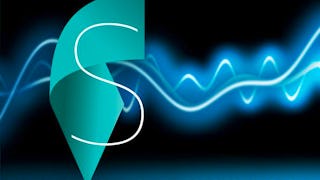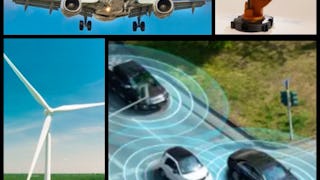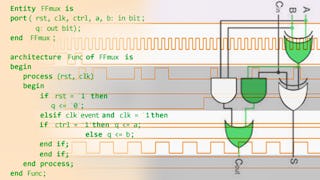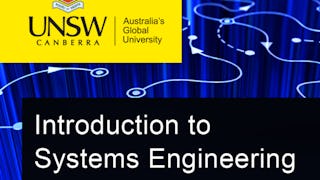Filter by
SubjectRequired
LanguageRequired
The language used throughout the course, in both instruction and assessments.
Learning ProductRequired
LevelRequired
DurationRequired
SkillsRequired
SubtitlesRequired
EducatorRequired
Explore the Signals & Systems Course Catalog
 Status: NewStatus: Free Trial
Status: NewStatus: Free TrialSkills you'll gain: Unix, Unix Commands, Shell Script, Bash (Scripting Language), Operating System Administration, Linux, File Systems, Operating Systems, Command-Line Interface, Performance Tuning, System Monitoring, System Programming, File Management, OS Process Management, System Configuration
 Status: Free Trial
Status: Free TrialÉcole Polytechnique Fédérale de Lausanne
Skills you'll gain: Digital Communications, Communication Systems, Image Analysis, Telecommunications, Electrical and Computer Engineering, Embedded Systems, Electronic Systems, Electronics, Electronics Engineering, Engineering Analysis, Engineering Calculations, Programming Principles, Numerical Analysis, Advanced Mathematics, Algorithms, Linear Algebra, Calculus, Applied Mathematics, Data Mapping, Mathematical Modeling

University of Colorado Boulder
Skills you'll gain: Control Systems, Process Control, Mathematical Modeling, Engineering Analysis, Differential Equations, Systems Analysis, Electrical Systems, Mechanics, Systems Thinking, Applied Mathematics, Performance Testing, Basic Electrical Systems
 Status: Preview
Status: PreviewUniversitat Autònoma de Barcelona
Skills you'll gain: Computer Architecture, Hardware Architecture, Technical Design, System Design and Implementation, Application Specific Integrated Circuits, Embedded Systems, Digital Design, Computer Hardware, Simulations
 Status: Preview
Status: PreviewUNSW Sydney (The University of New South Wales)
Skills you'll gain: Systems Engineering, Systems Development, Conceptual Design, Systems Design, Requirements Analysis, Systems Development Life Cycle, Requirements Elicitation, Systems Architecture, Systems Integration, Engineering Design Process, Functional Design, System Design and Implementation, Concept Of Operations, Technical Design, Configuration Management, Program Development, Prototyping, System Requirements, Risk Management Framework, Verification And Validation
 Status: Free Trial
Status: Free TrialÉcole Polytechnique Fédérale de Lausanne
Skills you'll gain: Digital Communications, Communication Systems, Electrical and Computer Engineering, Programming Principles, Telecommunications, Advanced Mathematics, Algorithms, Linear Algebra, Mathematical Modeling, Applied Mathematics
What brings you to Coursera today?
 Status: Free Trial
Status: Free TrialVanderbilt University
Skills you'll gain: Image Analysis, Data Visualization Software, Matlab, Machine Learning Methods, Applied Machine Learning, Scatter Plots, Dimensionality Reduction, Classification And Regression Tree (CART), Data Analysis, Histogram, Data Processing, Computer Vision, Regression Analysis, Digital Communications
 Status: Free Trial
Status: Free TrialSkills you'll gain: Electrical Systems, Electric Power Systems, Electrical Power, Control Systems, Electrical Equipment, Three-Phase, High Voltage, Wiring Diagram, Systems Analysis, Simulation and Simulation Software, Electrical Engineering, Network Analysis, Engineering Analysis, Numerical Analysis, Low Voltage, Mathematical Modeling, Simulations, Power Electronics, Graph Theory, Differential Equations
 Status: Free Trial
Status: Free TrialL&T EduTech
Skills you'll gain: Fire And Life Safety, Building Codes, Schematic Diagrams, Blueprint Reading, Process Flow Diagrams, Construction, Hydraulics, Construction Inspection, Safety Assurance, Safety Standards, Building Design, Hazard Analysis, Safety Training, Engineering Drawings, System Requirements, Safety and Security, System Monitoring, Facility Management and Maintenance, Structural Analysis, Plumbing
 Status: Free Trial
Status: Free TrialUniversity of Colorado Boulder
Skills you'll gain: Real-Time Operating Systems, Embedded Systems, Embedded Software, Hardware Architecture, Electronic Systems, Performance Tuning, Systems Architecture, Software Architecture, Verification And Validation, System Programming, Debugging, Software Design, System Design and Implementation, Linux, Software Technical Review, Systems Engineering, Operating Systems, Software Systems, System Software, Systems Design
 Status: NewStatus: Free Trial
Status: NewStatus: Free TrialUniversity of Minnesota
Skills you'll gain: Medical Devices, Semiconductors, Electronics Engineering, Biomedical Engineering, Manufacturing Processes, Design Specifications, Mechanical Engineering, Materials science, Emerging Technologies, Physics
 Status: Free Trial
Status: Free TrialSkills you'll gain: Embedded Systems, Embedded Software, Electronic Systems, Computer Systems, Internet Of Things, Automation, System Programming, Control Systems, C (Programming Language), Programmable Logic Controllers, Hardware Architecture, Power Electronics, Peripheral Devices, Wireless Networks, Medical Devices, Electrical Systems, Computer Architecture, Health Technology, Electronics, Maintenance, Repair, and Facility Services
Signals And Systems learners also search
In summary, here are 10 of our most popular signals and systems courses
- Unix Performance, Signals, and System Internals: EDUCBA
- Digital Signal Processing: École Polytechnique Fédérale de Lausanne
- Control Systems Analysis: Modeling of Dynamic Systems: University of Colorado Boulder
- Digital Systems: From Logic Gates to Processors: Universitat Autònoma de Barcelona
- Introduction to Systems Engineering: UNSW Sydney (The University of New South Wales)
- Digital Signal Processing 1: Basic Concepts and Algorithms: École Polytechnique Fédérale de Lausanne
- Introduction to Data, Signal, and Image Analysis with MATLAB: Vanderbilt University
- Industrial Power Systems Analysis and Stability: L&T EduTech
- Fire and Life Safety Systems: L&T EduTech
- Real-Time Embedded Systems: University of Colorado Boulder










